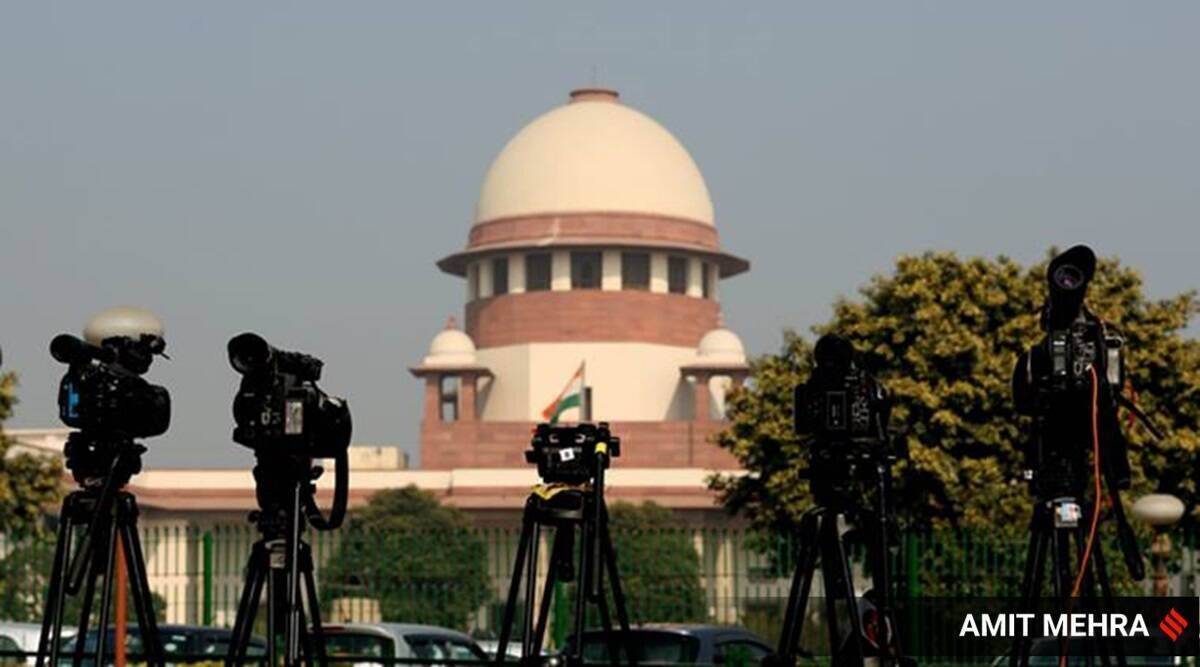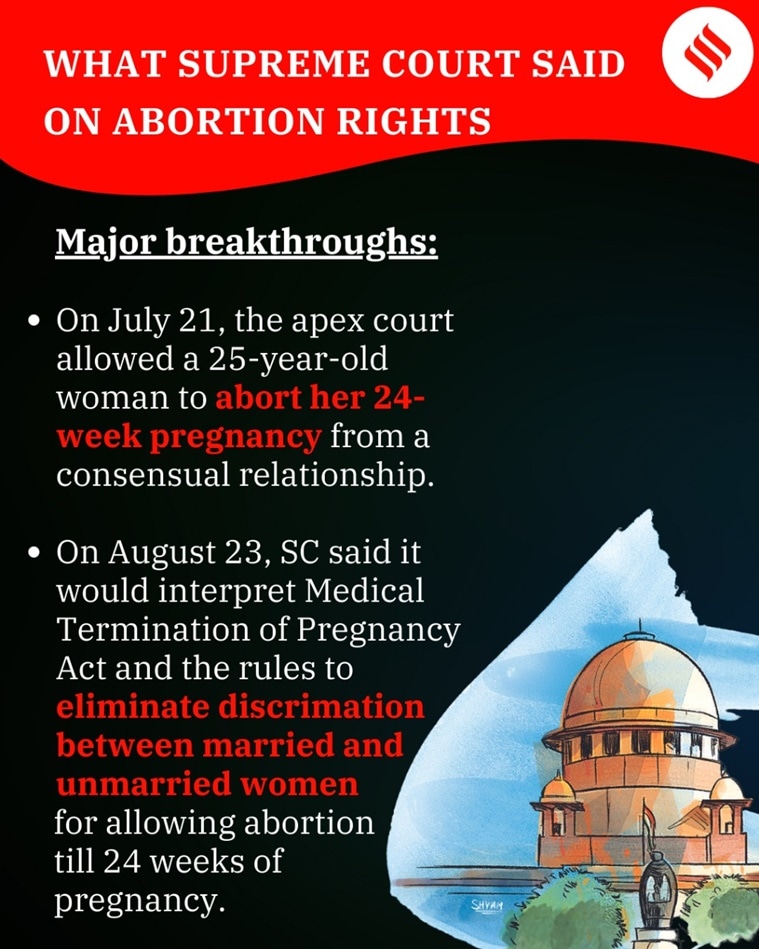 The judgment opines on the overall impact pregnancies have on both the body and mind of the pregnant person and how they should have absolute autonomy to terminate the pregnancy. But it does not strike down the requirement of the opinion of the RMPs even in the initial weeks. (File)
The judgment opines on the overall impact pregnancies have on both the body and mind of the pregnant person and how they should have absolute autonomy to terminate the pregnancy. But it does not strike down the requirement of the opinion of the RMPs even in the initial weeks. (File)The judgment of the Supreme Court in the case X v The Principal Secretary, Health and Family Welfare Department, Govt of NCT on abortion rights has been widely hailed as historic. Undoubtedly, it has reinforced the bodily and reproductive autonomy of pregnant persons. As a gender rights activist, my initial joy on seeing snippets of the judgment transitioned to mixed emotions after a thorough reading of the 75-page document. At the outset, the judgment is a progressive interpretation of existing laws. Unfortunately, it doesn’t read down the pre existing laws that are a barrier to complete bodily autonomy for pregnant persons.
The most popular pieces of news doing the rounds are one, unmarried women can now access abortion till 24 weeks and two, the consent of the woman is the only deciding factor when an abortion is sought. Firstly, the Medical Termination of Pregnancy (MTP) Act 1971 recognised pregnancies only within the institution of marriage with phrases like “married woman and her husband”. In 2021, the government amended the MTP Act and included phrases like “any woman and her partner”. Therefore, the existing law doesn’t make any distinction between married and unmarried women. When this amendment was criticised in Parliament, Harsh Vardhan, the then minister for health and family welfare, responded that such a change was necessary to keep up with the evolving social norms. The intent of the government was clear — irrespective of marital status, all women can access safe abortion during the legal period. Secondly, the amended law also raised the upper gestation limit for abortion from 20 to 24 weeks based on the recommendation of at least two registered medical practitioners (RMP).
However, the final decision to carry out the medical termination fell upon the opinion of the RMPs — one in cases before 20 weeks, at least two between 20-24 weeks, and a medical board beyond that. The Supreme Court, in the current judgment, acknowledges this prerequisite as an obstacle, which can lead to denial of service by RMPs due to the social stigma about unmarried women and pre-marital sex. Additionally, since abortion is legally permissible only within certain well-defined parameters like contraceptive failure, rape/coercion, minors, danger to physical/mental health of the pregnant woman, foetal abnormalities, etc, the RMPs fear being criminalised and are over-cautious. Therefore, they impose extra requirements like consent of family members, proof, authorisation by courts, etc. If the pregnant person fails to provide these legally unnecessary documents, the RMP may decline to perform the abortion. The SC judgment clarifies that the pregnant person’s consent is final and none of the extra-legal conditions is required. However, it merely urges the RMPs to refrain from creating these hurdles but doesn’t present any recourse for pregnant persons.
The judgment opines on the overall impact pregnancies have on both the body and mind of the pregnant person and how they should have absolute autonomy to terminate the pregnancy. But it does not strike down the requirement of the opinion of the RMPs even in the initial weeks. The barriers to abortion created by RMPs will continue hindering the right to self-determination of the pregnant person. Seeing that no change has been made to the existing laws is disappointing. A right encumbered by procedure is no right at all. By not expressly doing away with this onerous condition, the judgment has missed an opportunity for substantive change.
Yet, there are some noteworthy interpretations that filled me with hope. The first is the expansion of the definition of rape to include marital rape when it comes to the MTP Act 2021, enabling women to undergo an abortion if they become pregnant as a result of marital rape. The judgment reads, “It is not inconceivable that married women become pregnant as a result of their husbands having ‘raped’ them.” It also categorically specifies that “the institution of marriage does not influence the answer to the question of whether a woman has consented to sexual relations.” This is a progressive stance against the general belief that marriage automatically entitles men to sex, disregarding women’s agency.

Currently, the Indian Penal Code doesn’t criminalise marital rape. The judgment describes this lacuna as “a legal fiction”. As the matter of marital rape is under consideration before another bench of the SC, the recognition and interpretation of marital rape within the scope of MTP Act could act as a stepping stone to finally outlawing marital rape.
Second, in the case of termination of pregnancy of minors, though the RMP is obligated to report the matter under the POCSO Act, they are exempt from disclosing the minor’s identity on the request of the minor and their guardian.
Third, the judgment for the first time uses queer-affirmative language in interpreting the MTP Act. It clarifies that the word woman isn’t limited to cis-gendered woman, thereby including trans men and non-binary persons under the ambit of this law.
As a society that is yet to normalise concepts like sex education, premarital sex, mental health, non-binary gender, etc, the progressive pronouncements in the judgment will definitely serve to broaden the reproductive rights framework. But it is also a lost opportunity to remove all the barriers that hinder bodily autonomy. Now, the onus is on the executive branch to ensure the implementation of the laws in the spirit of this interpretation. It is high time that women and other pregnant persons of this country attain complete bodily and reproductive autonomy.
The writer is founder, Femme First Foundation